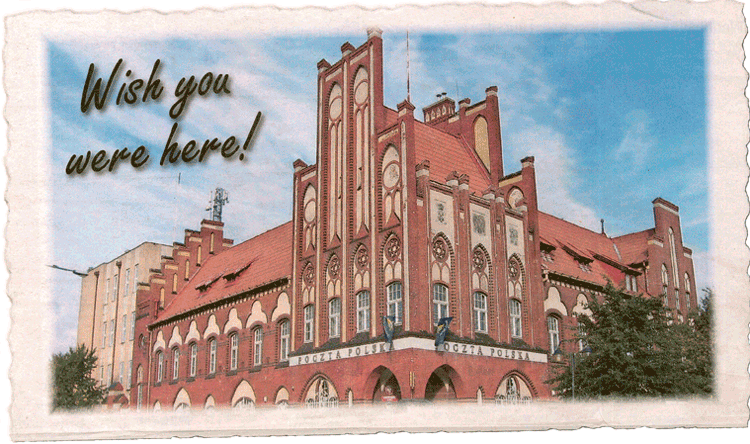Barking and Dagenham
The Post, Wednesday March 18, 2015
Pic: Władysław Kuc
The main post offices in Tczew
Barking and Dagenham's friendship link with the Polish town of Tczew has been all but forgotten. Tony Richards delves into its history
Tczew lies on the River Vistula. In the inter-war years it fell within the "Polish corridor", a strip of German land along the valley awarded to the Poles under the Treaty of Versailles so as to give their formerly land-locked country access to the Baltic Sea.
My late friend Cllr Len Collins – accompanted by the Council leader at the time – visited the Polish town to mark the start of the link with Barking and Dagenham in 1999.
He came back with glowing reports – not least of being treated to a performance of Cinderella, in English, by a group of local young thespians!
He had previously said he was opposed to the setting up of any other twinning arrangement beyond that with the German town of Witten, but the new relationship was not a formal twinning and he was obviously pleased to see the friendship established with Tczew.
Tczew's heritage includes its two long 19th-century bridges over the Vistula. Polish sappers blew them up on the first day of World War II in order to hold back the German army's advance into Poland.
The town centre, with its medieval church, is picturesque
and well worth a visit, as is its municipal park
Tony Richards
The Germans repaired them in 1940, but destroyed them again in 1945 to hold back the Russlan army's advance into Germany. They were not fully rebuilt until 1959.
The town has been a major rail-way Intersection point since the coming of railways In the mid-19th century.
The Prussian Railways operated between Germany's two historic capitals, Berlin and Königsberg (now Kaliningrad) and also between Danzig (now Gdańsk) and Warsaw, the Polish capital.
Tczew today remains a centre of the country's transport and machine building industries.
The town centre, with its medieval church and other buildings of that era, is picturesque and well worth a visit, as is its municipal park.
The town has also been known by its historic German name, Dirschau - its name fluctuating at different times of history.
On the collapse of the East German communist regime in 1989 German Chancellor Helmut Kohl caused a flurry by saying his country's future eastern border was a question for the German people to decide. Now it is agreed among all that the Oder-Neisse line is there to stay.
When in Tczew a visit to Gdan´sk is a must. It is on the Baltic some 20 miles to the north.
Trains to Gdańsk Główny are frequent. It was a Hanseatic city, and much of its maritime history may be seen.
I found a guide on its historie harbour eager to give explanations. The city was wholly German until it became a "free city" under the League of Nations in 1919.
As to currency, forget the Euros. It's still Zlotys and, at the time of writing, there are about 5.6 to the pound.
Hotel rooms are inexpensive. One costing just £17 a night scored an 87 per cent rating from visttors.
Restaurants, too, are inexpensive. Recommended: bigos, wild boar.
Of course, the mother tongue is Polish. but German is commonly heard – and English, too, not infrequently.
As to travel. you may gel the occasional one-way Ryanair ticket from Stansted for £18. Otherwise it's £99.
By road it's a 500-mile each-way drive sailing via Harwich-Hamburg. Or add another 50 miles if you feel like a stop-over in Berlin.
